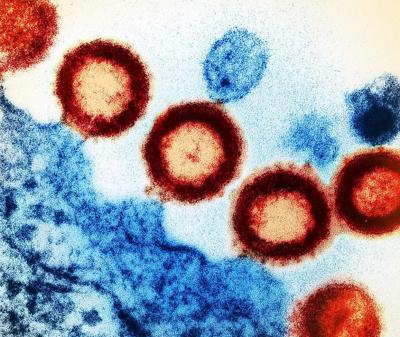Public health agencies that serve this part of Northern Michigan have issued advisories indicating that HIV infections have been on the rise in recent years.
HIV (human immunodeficiency virus) is a virus that attacks the body’s immune system. If HIV is not treated, it can lead to AIDS (acquired immunodeficiency syndrome). There is currently no effective cure. Once people get HIV, they have it for life, according to the Centers for Disease Control and Prevention.
Central Michigan District Health Department, District Health Department No. 10 and Northern Michigan Public Health Alliance are encouraging residents to get tested.
According to a press release issued by CMDHD, the increase was determined by comparing data from 2019-23 to data from 2014-18.
Over that time, HIV diagnoses increased 2.5 times the average number — from 14 to 44 in this region, which includes the counties of Antrim, Benzie, Charlevoix, Emmet, Grand Traverse, Kalkaska, Leelanau, Manistee, Missaukee, Otsego and Wexford. According to the Michigan Health Alert Network, there are several other noteworthy factors in this trend:
• 44% of the new diagnoses were found at stage 3 (AIDS diagnosis)
• 48% of the findings since 2021 were diagnosed this year, in 2023 (13 people)
• Only four of 27 new diagnoses since January 2021 have HIV testing history
• 67% were diagnosed in the emergency room or during outpatient visits
• Almost 41% do not have an identified risk, such as reported injection drug use
• 78% of the new diagnosis were among residents over 30 years of age, with the majority over 40.
“We are certainly paying attention to this increase, but there’s no cause for alarm,” said DHD No. 10 Health Officer Kevin Hughes. “We have done a lot of work to increase HIV testing, education and awareness in our communities, and hope that we continue to link folks with the treatment and resources they need.”
According to a press release issued by DHD No. 10, the increase in cases highlights the need for earlier diagnosis and the recommendation that everyone aged 15 to 65 years should be screened for HIV infection.
“There are medications that can be taken daily to reduce the risk of getting HIV and to treat HIV infections,” says DHD No. 10 Medical Director Dr. Jennifer Morse. “These preventative medications reduce the risk of contracting HIV from sex by 99% and from injection drug use by at least 74%. We encourage people who may have identified risks for HIV to determine if they can benefit from this preventative approach in addition to taking measures such as using condoms.”
“In addition to prevention, we encourage people to get tested, especially if they’ve never been screened for HIV,” said DHD No. 10 Family Health Clinical Co-Director Sheila Parker. “DHD No. 10 offers rapid testing, which means that clients can schedule an appointment and have their results before leaving our office. Or clients can visit our website and order at-home test kits, which can be mailed directly to them.”
DHD No. 10 offers HIV rapids tests at its clinics, as well as free mail-order HIV testing kits (https://www.dhd10.org/sexualhealth). The HIV rapid test involves a sampling of blood from a finger poke. As soon as the rapid results are in, a medical professional discusses them privately. The process and outcome are confidential.
If the test is positive, follow-up blood work is done to double-check the outcome. Appointments may be easily made by calling our local schedulers at 888-217-3904.
CMDHD’s Mount Pleasant office also offers rapid tests. The rapid HIV test uses a finger poke to collect a blood sample. Clients may choose to be tested for other sexually transmitted infections during their appointment, as hepatitis C, chlamydia, gonorrhea and syphilis infections have also increased in Northern Michigan.
HIV testing using a traditional blood draw also is available at all CMDHD Health Promotion offices. For more information about CMDHD’s HIV/STI testing, visit https://www.cmdhd.org/testing. Appointments are available by calling 989-314-7570 ext. 1409.
















Commented
Sorry, there are no recent results for popular commented articles.